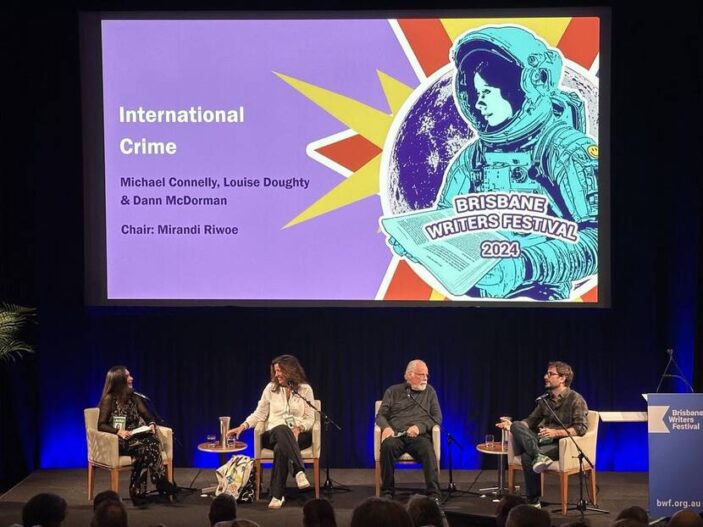
This past week, Brisbane hosted its annual Brisbane Writers Festival, drawing thousands of eager bookworms to Southbank for four days of literary celebration. With 150 events packed over four days, there was certainly plenty on offer. Featuring author panels, speeches, and performances showcasing both international and domestic talents from blockbuster bestsellers to literary luminaries, BWF 2024 offered an engaging and enriching experience from beginning to end. In its 61st year, the festival has certainly found and maintained its stride.
The true crime and crime fiction genres were particularly well-represented this year, much to my delight. The genre has certainly covered some ground with over two hundred years of tradition and additions, and it would be fair to suggest it may have explored nearly every facet of human intrigue and darkness. However, across several talks this year, its became clear that there is still ground left to cover.
Between panels and individual events, I had the privilege of attending three key sessions featuring four accomplished writers: Louise Doughty (A Bird in Winter), Michael Connelly (Resurrection Walk), Dann McDorman (West Heart Kills) and Jake Adelstein (Tokyo Vice).
International Crime: Michael Connelly, Louise Doughty, Dann McDorman w/Mirandi Riwoe
During the International Crime panel discussion led by Mirandi Riwoe, authors Michael Connelly, Louise Doughty, and Dann McDorman explored this intriguing question: Why are we drawn to stories of murder and suffering?
Traversing various facets of crime writing from inspiration, screen adaptations and authenticity, the hour long panel discussion could have easily filled more time.
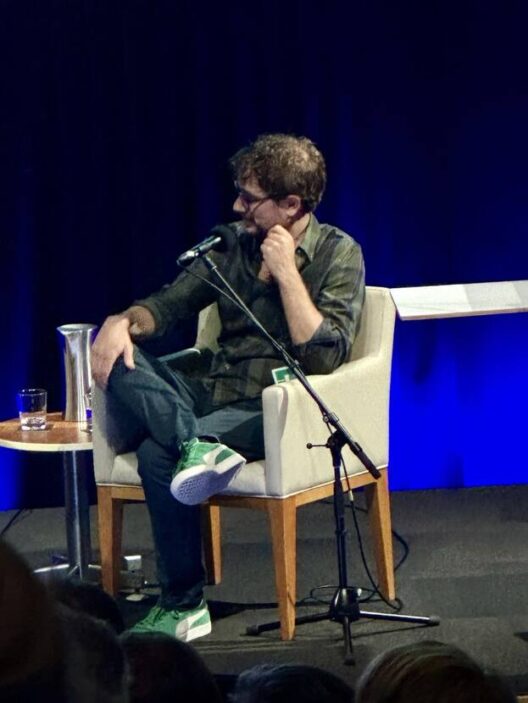 Opening the event was McDormand discussing his debut novel, West Heart Kill, which is set in the 1970s at a secluded hunting club. Inspired by the author’s visits to a real club in northern New York, McDormand aimed to create a book in the image of a classic golden age mystery.
Opening the event was McDormand discussing his debut novel, West Heart Kill, which is set in the 1970s at a secluded hunting club. Inspired by the author’s visits to a real club in northern New York, McDormand aimed to create a book in the image of a classic golden age mystery.
“(Agatha) Christie put all her mysteries on islands for a reason, so the hunting club was my inspiration” he explained.
The meta-fictional narrative features pop quizzes for readers and mock scholarly essays about genre tropes, which fans of the genre will delight in. For the book McDormand immersed himself into old school mysteries and the era of the 1970s and it certainly shows.
“I looked at everything. How people dressed, moved, and what they wore to high society events, and even what was in GQ and advertisements” he said.
Louise Doughty also shared the inspiration for her novel A Bird in Winter, which follows a woman named Bird who abruptly leaves an office meeting in Birmingham and goes on the run.
“I had this image of a woman in an office block, 20 floors up, suddenly getting up and leaving,” she said.
The pandemic influenced her writing, and her travels to places Bird would visit— Glasgow, the Western Isles, Norway, Iceland — helped shape the character’s journey. “I became fascinated by how secret work shapes personalities,” she said. Her travels also enriched her writing, capturing the sounds and atmosphere of locations like Norway and Iceland.
Michael Connolly, who is best known for the Harry Bosch series, instead draws ideas from his interactions with detectives, criminal defense attorneys, and others in the legal field.”My background as a reporter helps me listen and pick up authentic stories and dialogue,” Connolly said. “As long as I keep hanging around these people, I won’t run out of ideas. I don’t act like a reporter with a tape recorder. I just listen during breakfasts or martinis, sometimes at the same time”.
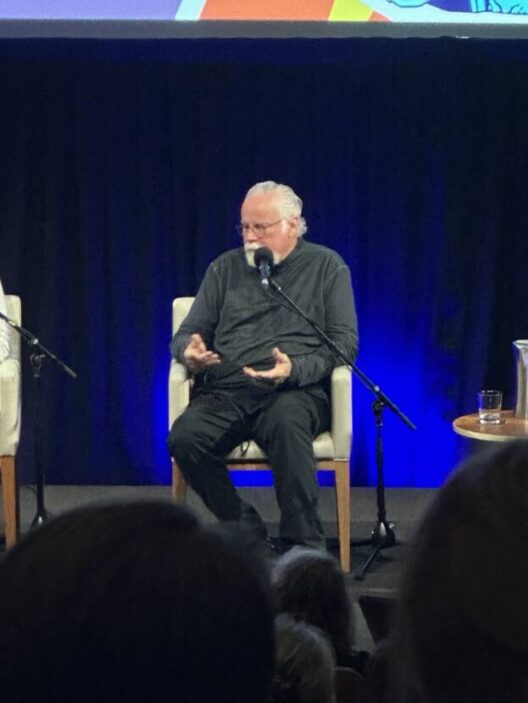
What followed was a fascinating dissection of the thematic elements of crime fiction and why we’re drawn to these stories. McDormand shared his thoughts: “Inventing a character, trying to infuse them with life just so that you could kill them off in a terrible way, seemed morally vexing to me,” he said. McDormand believes that readers are drawn to horrific content for various reasons, reflecting on the entertainment value of crime stories.
Doughty offered her perspective on the allure of crime fiction. “I think it comes down to the human interest in a puzzle and the nature of narrative,” she said. “The genre’s elasticity allows for a wide range of storytelling, from traditional mysteries to more complex narratives that explore deeper themes.”
Connolly echoed the sentiment, adding that crime fiction provides reassurance in a chaotic world. “People crave competence and truth and accuracy,” he said. “If you get these in a story and show someone relentless in pursuing a hidden truth, it’s reinforcing.”
Michael Connelly: Resurrection Walk w/ Chris Hammer
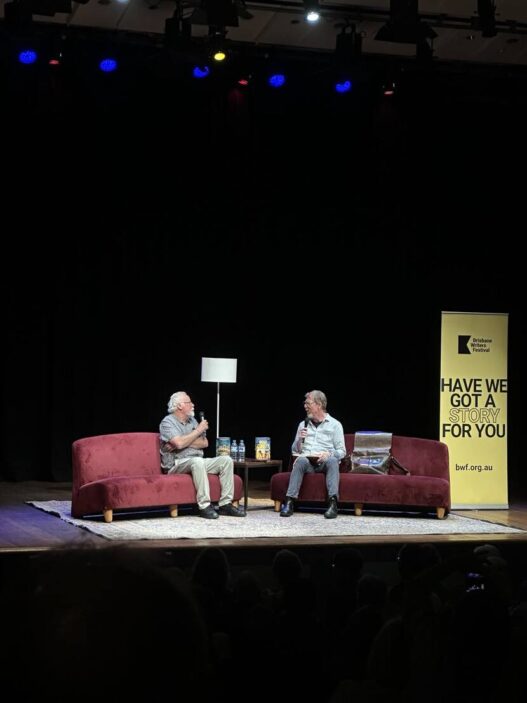
The next event featured Connelly in conversation with Chris Hammer about Connelly’s latest release Resurrection Walk.
In the eagerly anticipated novel, Connelly intertwines the worlds of two beloved characters, Lincoln lawyer Mickey Haller and gritty detective Harry Bosch, as they embark on a mission to prove the innocence of a woman accused of murdering her ex-husband.
Despite being a panel on the novel, it was arguably as much an examination of the life, times and inspiration of Michael Connelly as it was about Harry Bosch and Mickey Haller. Connelly candidly revealed his journey from engineering school to becoming a bestselling crime writer, reminiscing about the challenges of pursuing his passion against familial expectations.
“My father said meet the kind of people you want to write about. I was surprised but my father wanted to be a painter and gave up that artistic goal to work for his father. So when his son said I wanna do this artistic endeavor, I think he understood and wanted to encourage it” said Connelly.
This sage advice resonated deeply with Connelly, whose early days at the LA Times coincided with a real-life heist involving a gang attempting to tunnel into bank vaults—an incident that would inspire the first Harry Bosch novel, The Black Echo, marking the inception of a prolific 38-book career.
Connelly’s journalistic endeavors provided eye-opening insights into the world of crime, with the author recounting his interactions with countless detectives and witnessing firsthand the toll that relentless investigations took on these dedicated professionals. It was these experiences that fueled the creation of Bosch, a character shaped by the emotional weight of his profession and the relentless pursuit of justice.
Throughout the event, Connelly’s admiration for legendary crime writer Raymond Chandler was palpable, and evident in his deep affection for Chandler’s portrayal of Los Angeles and the quintessential gum-shoe detective archetype. A highlight of the evening was Connelly’s animated reading of a chapter from Chandler’s The Little Sister, a delight for the crime fiction enthusiasts in the audience.
As audience members eagerly posed questions about the future of Harry Bosch, Connelly remained characteristically enigmatic, neither confirming nor denying the possibility of Bosch’s demise. Instead, he hinted at the potential for further adventures, emphasizing the joy of witnessing Bosch age in real time alongside himself.

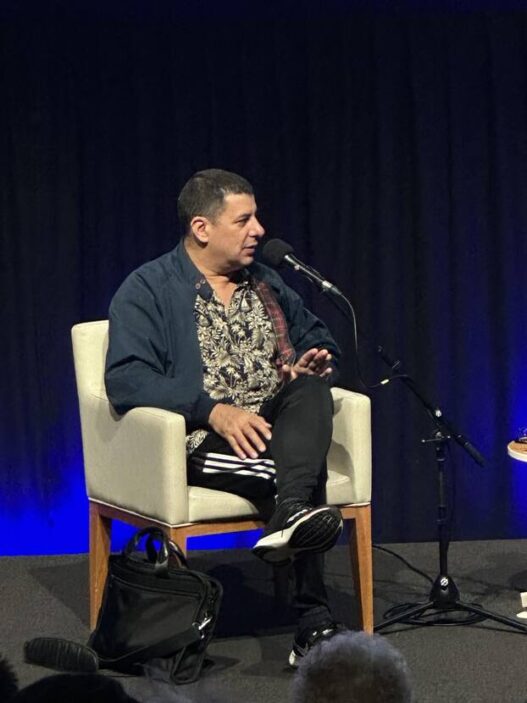
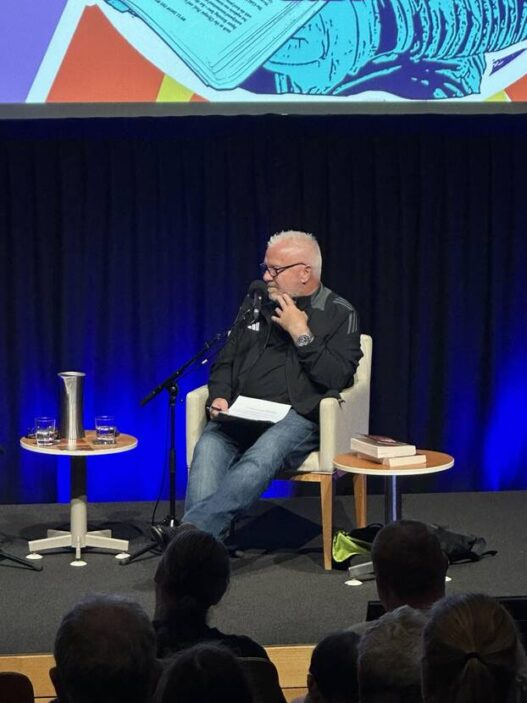 “People often wonder how I gained so much access. Japan is more open than most people think,” Adelstein remarked. “Being a white foreigner was a massive advantage—it made me memorable and people seemed more likely to talk to me”.
“People often wonder how I gained so much access. Japan is more open than most people think,” Adelstein remarked. “Being a white foreigner was a massive advantage—it made me memorable and people seemed more likely to talk to me”.